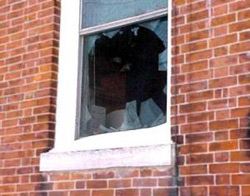I didn’t even realize Proposition L had passed—it doesn’t seem like something that would in San Francisco—until a whole day after Election Day. I started to sit on a sidewalk to wait for an outside bar table on one of our five annual warm nights when my friend said, “Oh, this is illegal now.”
The law that bans sitting or lying on city sidewalks between 7 a.m. and 11 p.m. passed with 54 percent approval after Mayor Gavin Newsom put it on the November ballot, after he put it before the Board of Supervisors in June and they were like, no way. Put to the popular vote, the pros of “afford[ing] everyone accessibility and civility on our sidewalks” and protecting the world from “hostile” and “confrontational” homeless people beat out the cons of infringing on citizens’ right to sit in a lot of the city’s public areas. (Some of the opponents of the law awesomely pointed out that the sidewalk campaigning the proponents are doing in this picture would be illegal.)
So what happens now that “Civil Sidewalks” are law? It’s time for the San Francisco Police Department to train its officers how to enforce them. Lieutenant Lyn Tomioka explained to me that City Hall, the mayor’s office, homeless and youth groups, businesses, and the officers’ commission are working together to come up with a training manual. The exact details are still up in the air, but whatever form it takes, Tomioka stressed several times, “it will be very thoughtful.” And I really don’t doubt it. Every interaction I’ve ever seen a San Francisco cop initiate with a homeless person has been superpolite.
This law isn’t aimed at me, and enforcement may or may not be, but what would police say to two upwardly mobile white gals sitting outside a Mission bar? What would they do if said gals become “hostile” or “confrontational”? We should know what the new sit/lie manual calls for soon. Tomioka says the cops’ training will likely start in January, and that I can sit in.
















